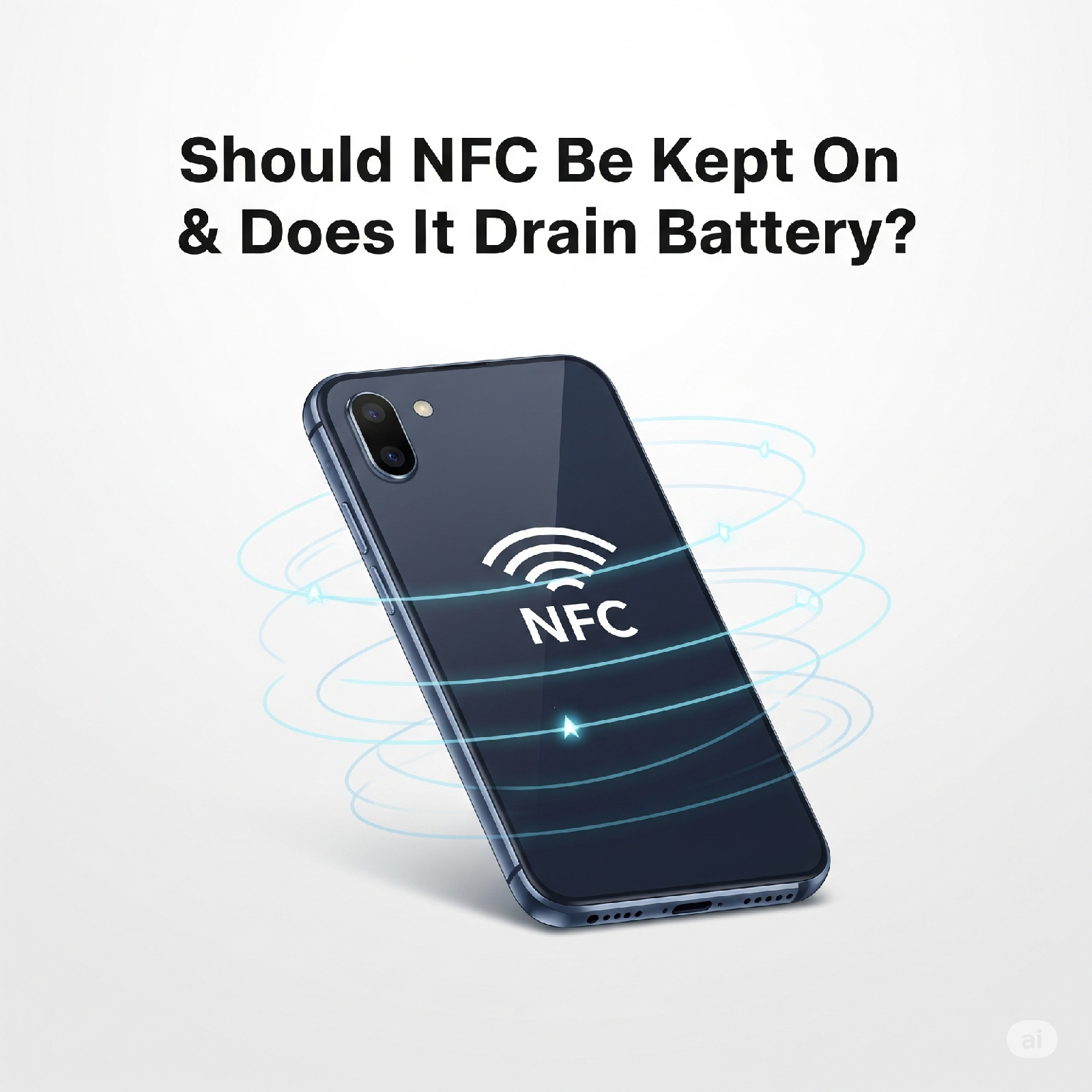Have you ever wondered whether the NFC feature on your smartphone needs to be always on? Is it true that NFC drains the battery quickly? Questions like these often arise, especially among Android and iPhone users who want to maximize their device's features without sacrificing battery life.
The NFC feature is increasingly popular because it makes various activities easier, from digital payments to data transfers. But, is it safe and efficient if left active all the time? Check out the full explanation in this article. The answer may not be what you imagine.
What is NFC and Why is it Widely Used?
Pengertian NFC (Near Field Communication)
NFC or Near Field Communication is a short-range wireless communication technology that allows two devices to exchange data simply by bringing them close together, usually within a distance of less than 4 cm. This technology is used in various things, such as:
- Contactless payments (Google Pay, Samsung Pay, Apple Pay)
- Transfer contacts or files between devices
- Unlock smart doors or auto-login to specific devices
- Check or top up your e-money balance
Reasons for NFC Popularity
Convenience and speed are the main reasons why NFC is increasingly popular. Just by bringing the phone close to the reader, transactions or connections can occur immediately without having to open a specific application.
However, along with this convenience, there are also concerns: does NFC need to be activated all the time? Does it have a big impact on battery consumption?
Fact: Does NFC Have to Be Enabled All the Time?
1. Doesn't Have to Be Always Active
Technically, NFC doesn’t need to be enabled all the time unless you use it regularly every day. For example, if you frequently use NFC to pay at convenience stores or on public transportation, enabling it might be a practical option.
However, for users who only use NFC occasionally, it is better to turn it off and only turn it on when needed . This is not only for efficiency, but also for security reasons.
2. Is it safe to leave it active?
While the risk of NFC abuse is very small because its operating range is very short, disabling it when not in use can add a layer of protection . This is because an NFC-enabled device could theoretically be spied on by another device if it is within range and exposed.
Does NFC Drain Battery? Here's the Expert's Answer
3. NFC Power Consumption is Very Low
Unlike Wi-Fi or Bluetooth, which perform periodic scanning and require more power, NFC works passively until it detects a device or tag nearby .
This means that as long as there is no NFC activity, this feature consumes almost no battery . Even when it is active, the power consumption is very small and almost unnoticeable.
4. Test Results: NFC vs. Battery
Several tests from the tech community show that:
- NFC left active for 24 hours only reduces the battery by about 0.1% to 0.5%
- Within a week, the impact remains insignificant unless your device is experiencing a bug or a particular app is causing NFC to keep working.
So, NFC is not the main cause of fast battery drain . Other features such as screen on, background apps, GPS, and cellular data signal have a much bigger impact on battery consumption.
When Should NFC Be Turned Off?
5. Tips for Saving Battery Effectively
If your main goal is to save battery, focus on the following settings:
- Turn off Bluetooth and GPS when not in use
- Use battery saving mode
- Close unimportant background apps
- Reduce screen brightness
- Use dark mode if available
Turning off NFC has only a small impact on battery savings , but can still be considered as part of the optimization steps.
So the conclusion, enable or disable NFC?
Short Summary
- NFC doesn't need to be on all the time , unless you use it every day.
- NFC power consumption is very low, even when active
- Disabling NFC when not in use can be an added security feature.
- The main focus of battery saving should not be on NFC, but other more power-hungry features.
Recommendations from ajakteman.com
If you want to get the most out of your smartphone without sacrificing battery life, use NFC wisely . There’s no harm in leaving it on if you rely on it every day. But if you rarely use it, disabling it can be a smart and safe choice.
Don't hesitate to rearrange the active features on your phone based on your daily needs. Technology should be easy, not a burden. Long-lasting battery, stable performance, and maintained security can be achieved with the right habits.
Now you know that NFC is not the battery hog that many fear. The decision to turn it on or off is entirely up to your own usage habits.
So, are you still worried about NFC draining your battery? Or do you feel more confident about having it on every day?
Hopefully this article answers your curiosity. If you want other useful information about everyday technology, don't hesitate to visit ajakteman.com.
